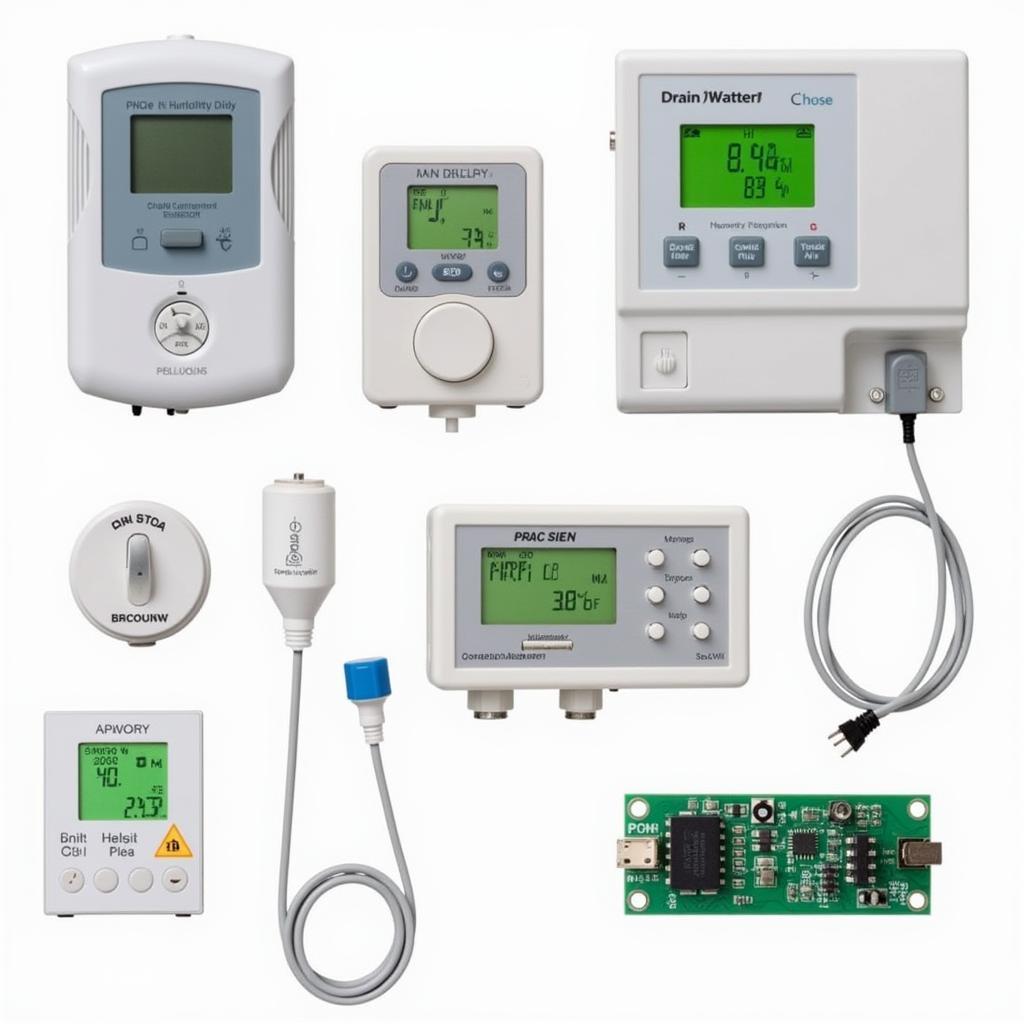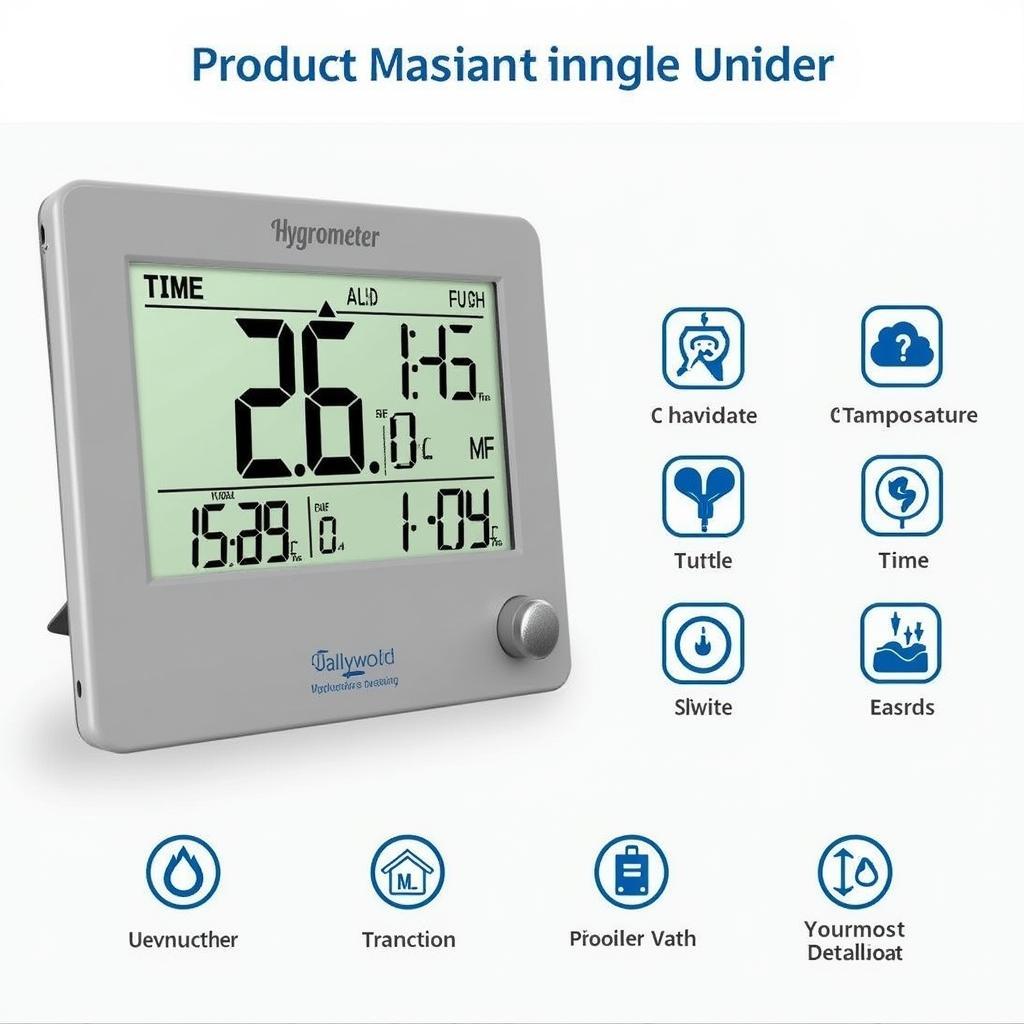Humidity sensors are becoming increasingly popular in homes as people become more aware of the importance of maintaining optimal indoor humidity levels. But with so many different types and models available, choosing the right humidity sensor for your needs can be overwhelming.
This comprehensive guide will provide you with everything you need to know about humidity sensors for your home, including the different types, benefits, and factors to consider before purchasing.
What are Humidity Sensors and Why Do You Need Them?
Humidity sensors are devices that measure the amount of moisture or water vapor present in the air. They work by detecting changes in the electrical resistance or capacitance of a material as it absorbs moisture. This information is then converted into a relative humidity (RH) reading, which is expressed as a percentage.
 Types of Humidity Sensors
Types of Humidity Sensors
But why is monitoring indoor humidity important? Here are a few reasons:
- Health: Maintaining optimal humidity levels (between 30% and 50% RH) can help prevent respiratory problems, allergies, and skin irritation.
- Comfort: High humidity can make you feel sticky and uncomfortable, while low humidity can lead to dry skin, nosebleeds, and static electricity.
- Home Protection: Excessive humidity can promote mold growth, damage furniture and electronics, and attract pests.
- Energy Efficiency: Proper humidity levels can help your HVAC system run more efficiently, saving you money on energy bills.
Types of Humidity Sensors for Home Use
There are various types of humidity sensors available for home use, each with its advantages and disadvantages:
1. Analog Hygrometers
Analog hygrometers are the simplest and most affordable type of humidity sensor. They typically use a needle and dial display to show the relative humidity level. While they are generally less accurate than digital hygrometers, they are a good option for basic humidity monitoring.
2. Digital Hygrometers
Digital hygrometers offer higher accuracy and often come with additional features like temperature readings, clock, and data logging capabilities. They are easy to read and provide precise humidity measurements.
 Digital Hygrometer with Advanced Features
Digital Hygrometer with Advanced Features
3. Smart Humidity Sensors
Smart humidity sensors connect to your Wi-Fi network and allow you to monitor humidity levels remotely through your smartphone or computer. They often integrate with other smart home devices and platforms like Amazon Alexa or Google Assistant, enabling you to set up automated humidity control systems. For instance, you can connect a smart humidity sensor to your humidifier or dehumidifier to maintain a specific RH range automatically.
Factors to Consider When Choosing a Humidity Sensor
When selecting a humidity sensor for your home, consider the following factors:
- Accuracy: Look for sensors with an accuracy of +/- 3% RH or better for reliable readings.
- Measurement Range: Ensure the sensor’s measurement range covers the typical humidity levels in your area.
- Display: Choose a display that is easy to read and provides clear information.
- Additional Features: Consider features like temperature readings, data logging, and smart home integration based on your needs.
- Price: Set a budget and explore different options within your price range.
Integrating Humidity Sensors with Your Smart Home
Smart humidity sensors can be a valuable addition to your smart home ecosystem. By integrating them with other devices and platforms, you can create a more comfortable and healthy living environment.
For example, you can:
- Use a Raspberry Pi for Home Assistant to collect humidity data and control connected devices based on pre-set rules.
- Connect your humidity sensor to Home Assistant InfluxDB to visualize historical humidity data and identify trends.
- Control your HVAC system or a compatible humidifier/dehumidifier through a manual Honeywell Home interface integrated with your humidity sensor.
Conclusion
Maintaining optimal humidity levels in your home is crucial for your health, comfort, and the longevity of your belongings. Humidity sensors are essential tools for monitoring and managing indoor humidity effectively.
By understanding the different types of humidity sensors, their features, and the factors to consider before purchasing, you can choose the best option for your specific needs.
Whether you opt for a simple analog hygrometer or a sophisticated smart sensor, investing in a quality humidity sensor can contribute significantly to a healthier and more comfortable living environment.